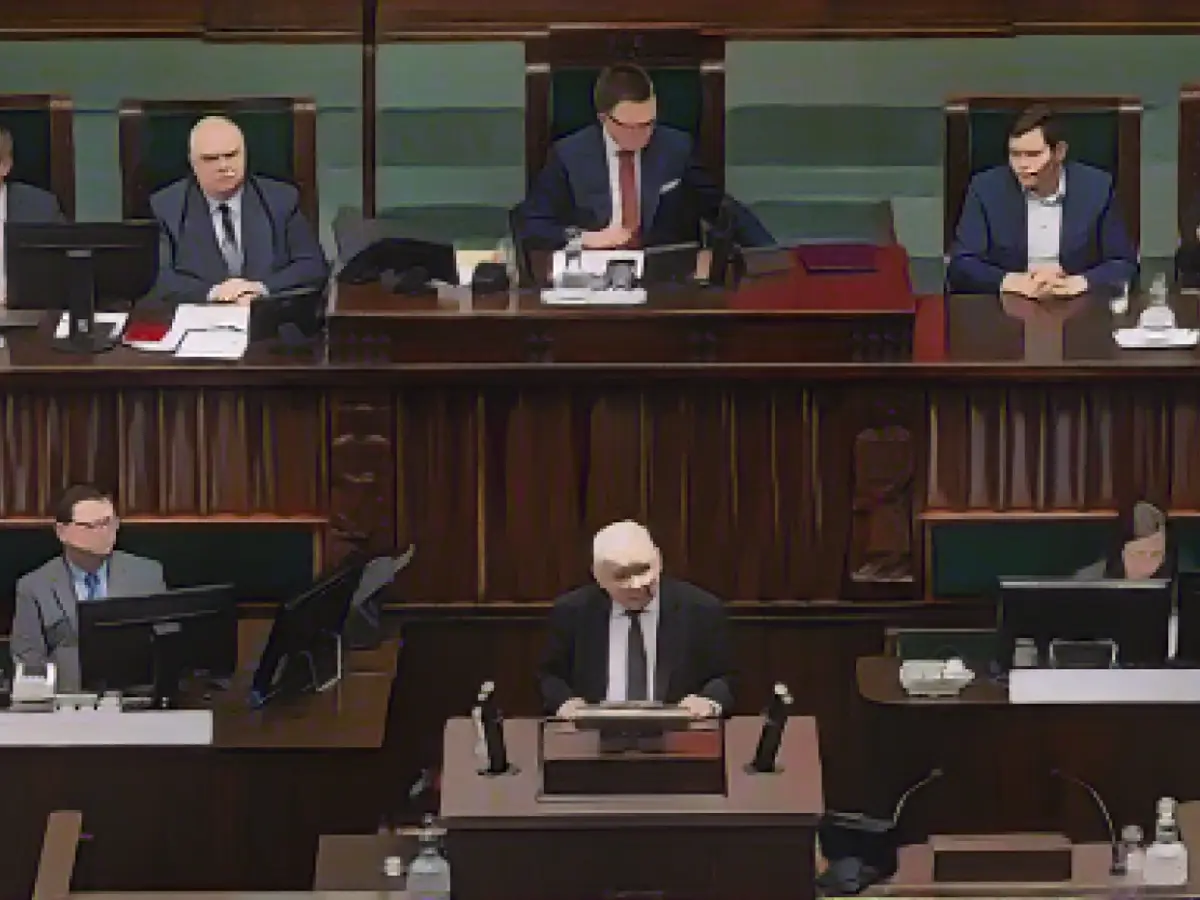With the elections in October, Poland's Law and Justice (PiS) party fell short of attaining a parliamentary majority, and since then, they've been unsuccessful in forming a coalition to maintain their power. The ballot on Monday marks the end of the PiS's eight-year dictatorship, an era that raised concerns among international institutions and deeply divided Polish society.
Centalist politician, Donald Tusk, finally has the opportunity to officially form his coalition. On Monday, he's expected to become the new premier, followed by a confidence vote, which he's likely to win.
This unexpected event signifies the end of Poland's dominance in European politics, potentially reshaping the global power balance. Despite being a member of the EU, the new government may prioritize domestic concerns, leading to a reevaluation of Poland's role within the European community.
Source:
The PiS party, under Jarosław Kaczyński's leadership, introduced conservative and nationalistic policies that often clashed with the EU's liberal internationalist stance. A more pro-European government, led by Tusk, could potentially align Poland's stance with EU values and institutions.
This may also enhance Poland's role in EU-US cooperation, particularly in shaping global power dynamics. Simultaneously, the new government's focus on democratic values and human rights could strengthen Poland's reputation within the EU and internationally.
However, internal political instability poses challenges, with the civic coalition facing opposition from the PiS party. This instability could lead to legal uncertainty, gridlock, and potential constitutional crises.
The new government also faces external pressures, including accusations from President Andrzej Duda that the EU could interfere in Poland's upcoming presidential elections, indicating ongoing tensions between Poland and the EU.
In conclusion, Poland's political transition presents both opportunities and challenges. The new government's pro-European stance may lead to increased influence within the EU, while its internal political instability and ongoing tensions could hinder this progress.








